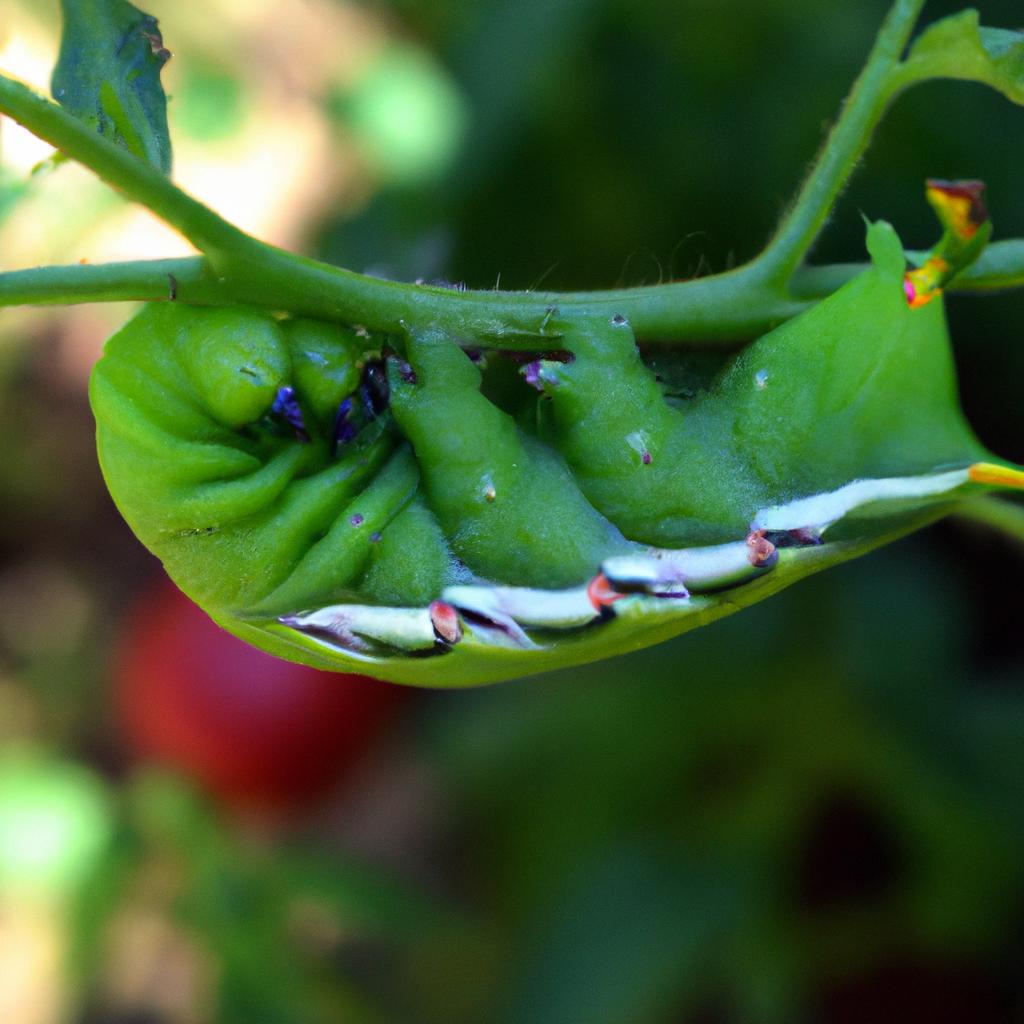Learn how to identify and manage tennessee garden pests to protect your plants. This comprehensive guide offers effective strategies for a pest-free garden.
Tennessee, known for its lush landscapes and vibrant flora, offers a haven for garden enthusiasts. Whether you’re a seasoned gardener or just beginning your green-thumb journey, it’s essential to be aware of the challenges that can arise in the form of garden pests. These uninvited guests can wreak havoc on your beloved plants and disrupt the harmony of your garden oasis. That’s where understanding and effectively managing Tennessee garden pests becomes crucial.
Gardening in Tennessee presents a unique set of circumstances. The state’s diverse climate, ranging from the humid subtropical climate in the west to the humid continental climate in the east, creates an environment that is a prime breeding ground for various pests. From pesky insects to cunning rodents and sneaky wildlife, these creatures can quickly turn your flourishing garden into a battleground.
Identifying and managing garden pests is of utmost importance to maintain the health and vitality of your plants. Failure to address the issue promptly can lead to devastating consequences, such as stunted growth, leaf damage, and even the loss of your prized blooms. By staying vigilant and learning how to effectively combat these pests, you can ensure that your garden remains a thriving haven for both plants and yourself.
In this comprehensive guide, homegardenartful.com will delve into the world of Tennessee garden pests. We will explore the most common pests you may encounter, from bothersome insects to persistent rodents and curious wildlife. By understanding their characteristics and behaviors, you can better equip yourself to combat their presence in your garden.
So, join me as we embark on a journey to uncover the secrets of Tennessee garden pests. Together, we will learn how to identify, prevent, and manage these unwelcome visitors, ensuring that our gardens remain vibrant, flourishing, and pest-free. Let’s dive in and reclaim our gardens from these formidable foes.
Common Tennessee Garden Pests
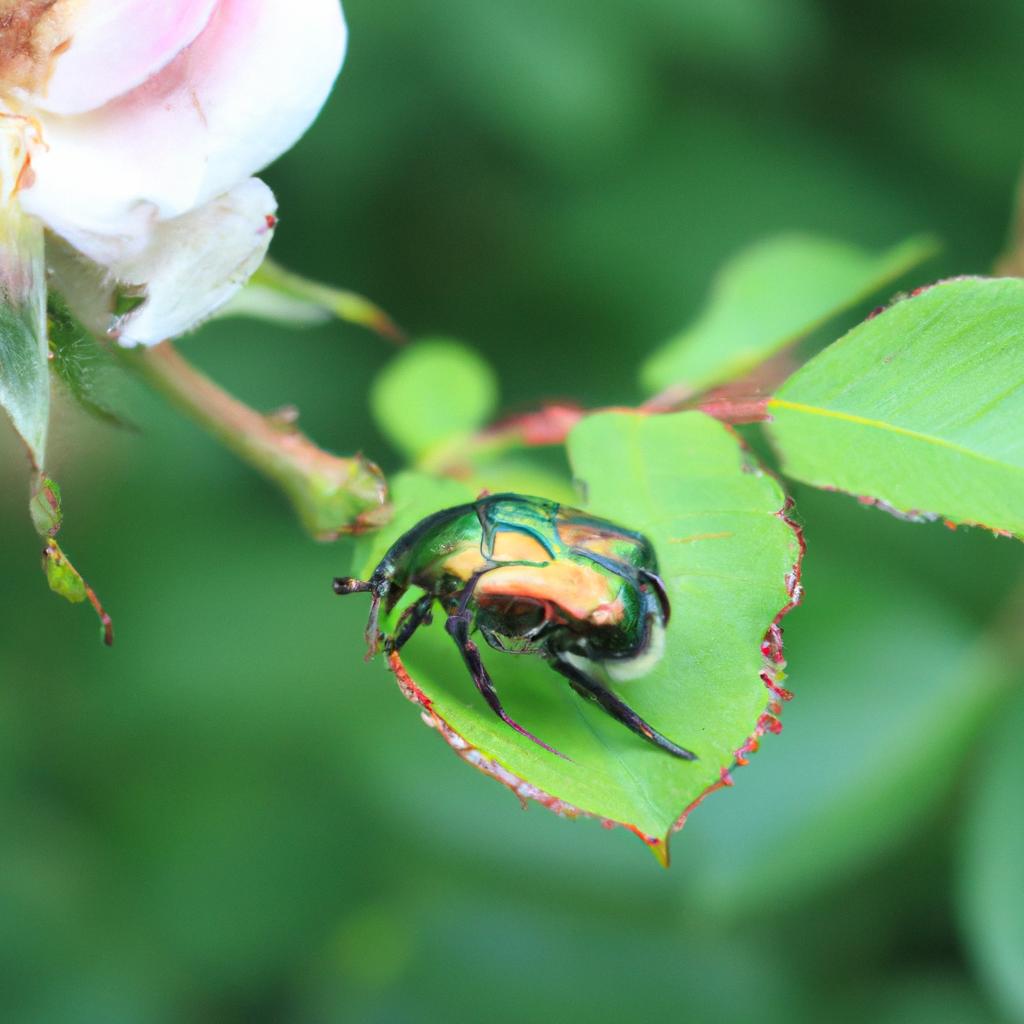
Overview of the Most Common Pests Found in Tennessee Gardens
When it comes to Tennessee gardens, a variety of pests can pose a threat to your beloved plants. Let’s take a closer look at the most common culprits you may encounter:
1. Insects
Insects are notorious troublemakers in the garden, capable of inflicting significant damage to your plants. Some of the most prevalent insect pests in Tennessee include:
- Aphids: These tiny, pear-shaped insects cluster on the undersides of leaves, sucking sap and causing curling and yellowing.
- Tomato Hornworms: These large, green caterpillars can devour entire tomato plants if left unchecked. Look out for their distinctive horn-like appendage and consider handpicking or using organic control methods.
- Japanese Beetles: These metallic green and copper-colored beetles feed on a wide range of plants, skeletonizing leaves and causing defoliation.
2. Rodents
Rodents can be a persistent nuisance in Tennessee gardens, causing damage to both plants and structures. Keep an eye out for:
- Mice: These small rodents can wreak havoc by nibbling on plant stems and roots, as well as contaminating fruits and vegetables with their droppings.
- Rats: Larger and more destructive than mice, rats can chew through plant material, damage structures, and spread diseases.
3. Wildlife
While the presence of wildlife in your garden can be enchanting, some species can become problematic. The following wildlife pests are commonly encountered in Tennessee gardens:
- Deer: These graceful creatures may find your garden plants irresistible, leading to significant damage to foliage and flowers.
- Rabbits: With their voracious appetites, rabbits can quickly decimate your plants, leaving behind a trail of nibbled leaves and stems.
By familiarizing yourself with these common garden pests, you’ll be better prepared to spot their presence and take appropriate action. In the upcoming sections, we will delve deeper into their identification, the damage they can cause, and effective strategies for prevention and management. Stay tuned as we equip ourselves with the knowledge needed to protect our gardens from these unwanted visitors.
Identification of Tennessee Garden Pests
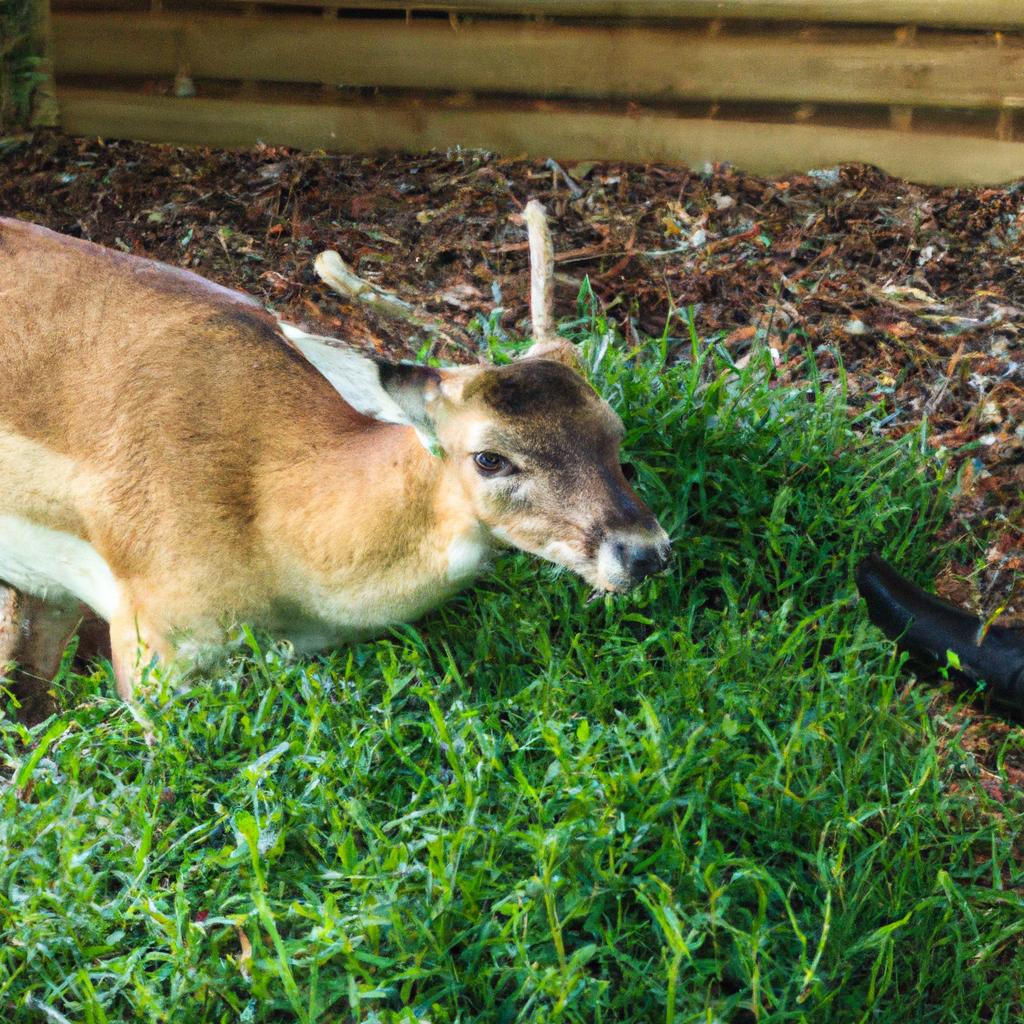
A. Detailed descriptions and characteristics of common garden pests
Garden pests come in various forms, each with their unique characteristics and behaviors. By familiarizing ourselves with these troublesome critters, we can effectively identify and address their presence in our Tennessee gardens. Let’s take a closer look at the common garden pests you may encounter:
1. Insect pests
Insects can quickly multiply and wreak havoc on your plants. Here are some key insect pests to watch out for:
a. Aphids
Aphids are small, pear-shaped insects that cluster on the undersides of leaves and tender shoots. These tiny pests suck the sap from plants, causing stunted growth and distorted foliage. Look out for clusters of green, black, or brown aphids and the sticky residue they leave behind.
b. Tomato hornworms
Tomato hornworms are large, green caterpillars that feed on the leaves and fruits of tomato plants. They can strip a plant of its foliage within days, leaving behind defoliated stems. Look for their distinctive green color, horn-like protrusions, and the telltale black droppings they leave on leaves.
c. Japanese beetles
Japanese beetles are metallic green beetles with coppery-brown wing covers. These voracious pests feed on many different plants, skeletonizing leaves and leaving them lace-like in appearance. Look for their characteristic feeding damage and clusters of beetles congregating on plants.
2. Rodent pests
Rodents can pose a significant threat to your garden, causing damage to plants and structures. Here are two common rodent pests to be aware of:
a. Mice
Mice are small rodents that can cause extensive damage by nibbling on plant stems and roots. Look for small droppings, gnaw marks, and signs of tunneling near your plants. Mice are particularly active during the night, so keep an eye out for any signs of their presence.
b. Rats
Rats are larger rodents that can wreak havoc on gardens, feeding on a wide range of plant material. Look for larger droppings, gnaw marks on fruits and vegetables, and burrow holes in the ground. Rats are skilled climbers, so they may also climb trees and access your garden from above.
3. Wildlife pests
Wildlife pests can be a challenge to manage, as they can decimate your garden in search of food. Here are two common wildlife pests in Tennessee:
a. Deer
Deer can cause significant damage to your garden, especially during the growing season. Look for evidence of deer browsing, such as plants with jagged or torn leaves and stems. Fences and repellents can be effective in deterring deer from your garden.
b. Rabbits
Rabbits are notorious for their appetite for tender plant shoots and leaves. Look for signs of rabbit activity, such as chewed stems and distinctive pellet-like droppings. Fencing and repellents can help protect your plants from rabbit damage.
By familiarizing yourself with the characteristics and behaviors of these common garden pests, you can take proactive measures to prevent and manage their impact on your Tennessee garden. Stay tuned for the next section, where we will explore the damage caused by these pests and discuss effective prevention and management strategies.
Damage Caused by Tennessee Garden Pests
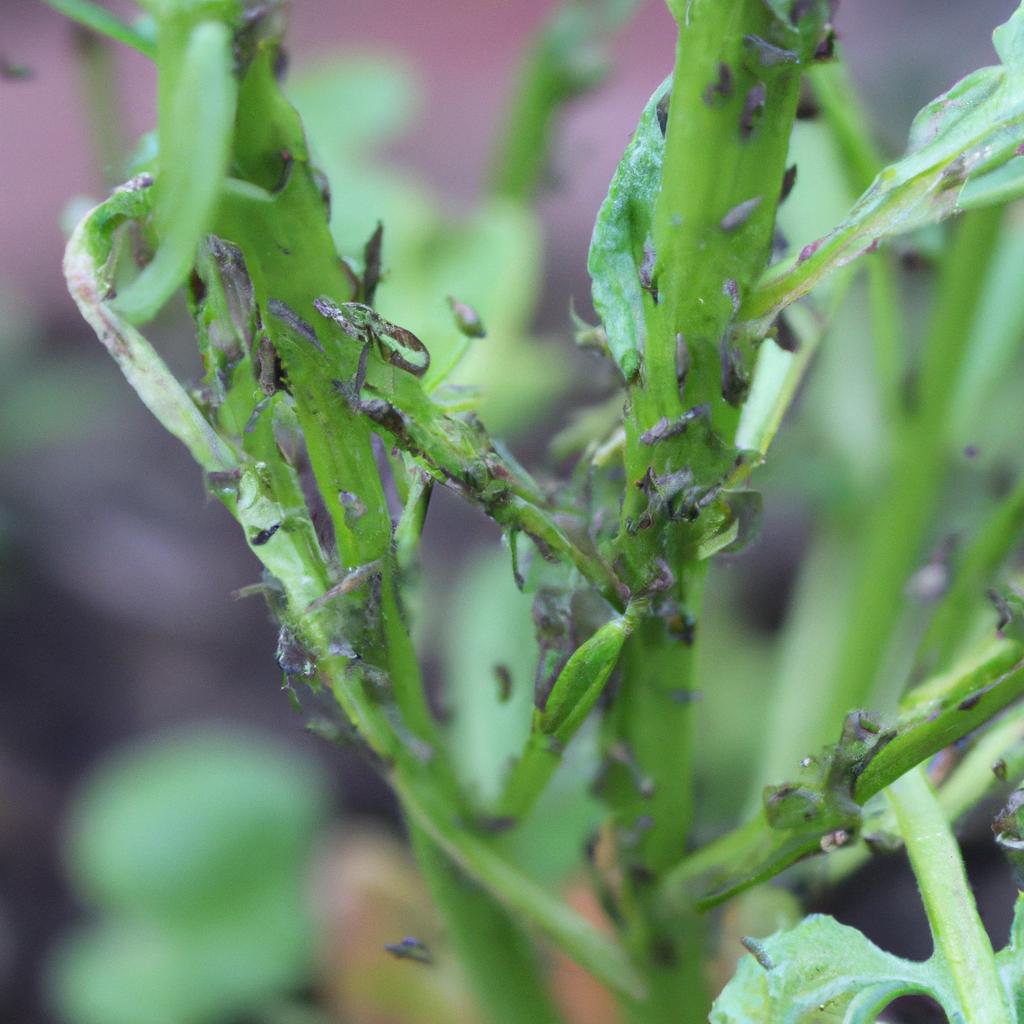
Tennessee Garden Pests can cause significant damage to your plants, leading to frustration and disappointment. Understanding the potential harm caused by each pest category is crucial in effectively managing and mitigating their impact on your garden oasis.
A. Explanation of the Potential Harm Caused by Each Pest Category
1. Insect pests
Insects, such as aphids, tomato hornworms, and Japanese beetles, can wreak havoc on your plants. Aphids, those tiny sap-sucking insects, multiply rapidly and can weaken plants by depleting their sap. Tomato hornworms, on the other hand, voraciously devour tomato plants, defoliating them and hindering fruit production. Japanese beetles, with their insatiable appetite, feast on various plants, causing skeletonized leaves and compromising the overall health of your garden.
2. Rodent pests
Rodents, including mice and rats, pose a threat to both your garden and your home. These pesky creatures can nibble on the stems, leaves, and roots of your plants, leading to stunted growth and even plant death. Additionally, they can contaminate your garden with their droppings, potentially spreading harmful bacteria and diseases.
3. Wildlife pests
While the sight of deer or rabbits may be charming, they can wreak havoc on your garden. Deer, with their browsing behavior, can decimate your plants, leaving behind stripped foliage and broken stems. Similarly, rabbits are notorious for their nibbling tendencies, particularly targeting young and tender plants. These wildlife pests can quickly turn your carefully curated garden into their personal buffet, leaving you with a sense of despair.
By understanding the potential damage caused by these various pest categories, you can take proactive measures to protect your plants and mitigate their impact. Keep reading to discover effective prevention and management strategies to safeguard your garden from these relentless invaders.
Prevention and Management of Tennessee Garden Pests
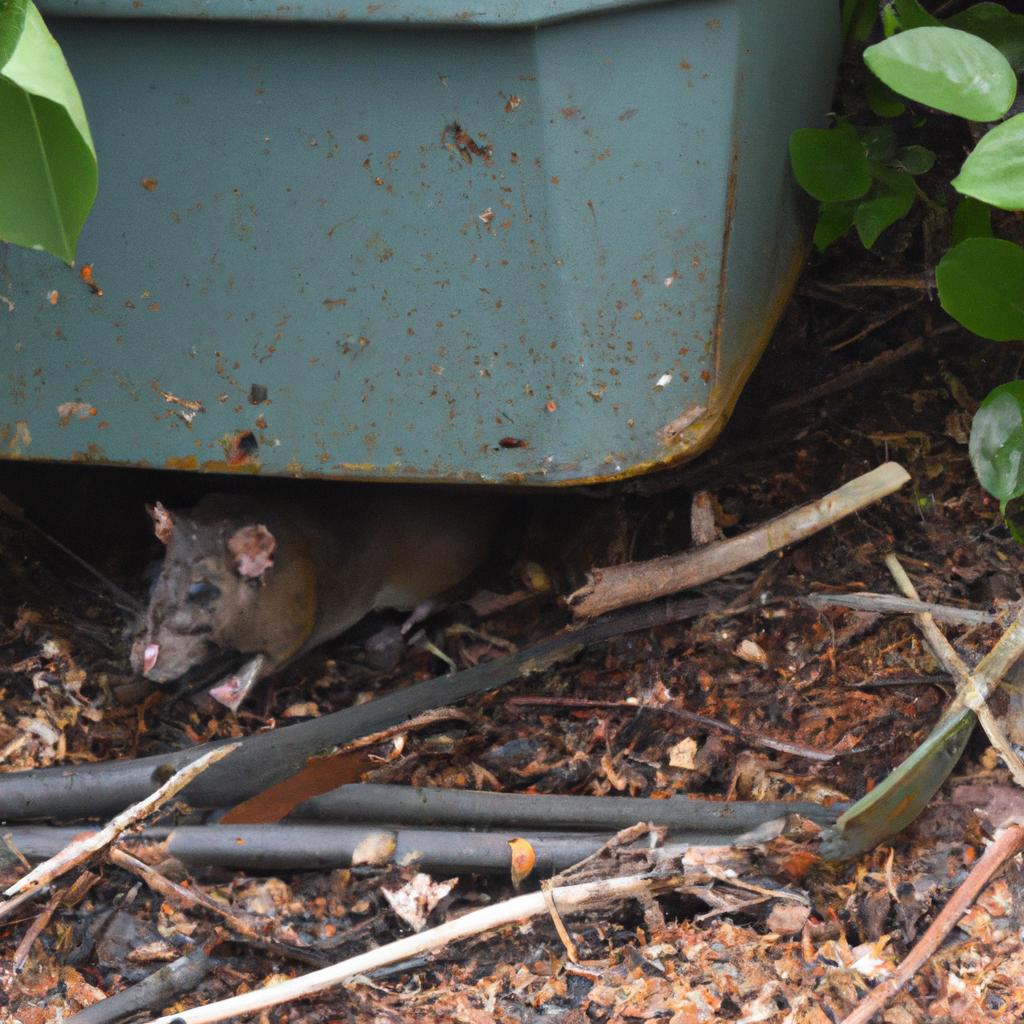
A. Organic Pest Control Methods
When it comes to combating Tennessee Garden Pests, organic pest control methods offer a safe and environmentally friendly approach. By harnessing the power of nature, we can effectively manage these unwanted visitors without resorting to harsh chemicals. Let’s explore some organic pest control options that can help safeguard your garden:
1. Companion Planting
Nature has a way of balancing itself, and companion planting takes advantage of this phenomenon. By strategically intermingling certain plants, you can repel or attract specific pests, creating a natural defense system for your garden. For example, planting marigolds alongside your vegetables can deter aphids and nematodes, while attracting beneficial insects like ladybugs and bees.
2. Natural Predators
Introducing natural predators into your garden is another organic approach to pest control. Be it ladybugs feasting on aphids or birds hunting for caterpillars, these beneficial creatures can help keep pest populations in check. You can attract them by providing suitable habitats, such as birdhouses or insect hotels, or by planting flowers that entice them to visit.
3. Homemade Remedies
Sometimes, simple household ingredients can work wonders in deterring pests. Create your own homemade remedies to combat specific pests. For instance, a mixture of water, dish soap, and garlic can be sprayed on plants to repel insects like aphids and caterpillars. Additionally, a blend of vinegar and water can help keep weeds at bay, reducing the chances of them attracting pests.
B. Chemical Pest Control Options
While organic methods are preferable, there may be instances where chemical pest control becomes necessary. When using chemical options, it’s crucial to prioritize safety and follow the instructions carefully. Here are some chemical pest control options to consider:
1. Insecticides
Insecticides can be effective in targeting specific pests that pose a significant threat to your garden. However, it’s essential to choose insecticides that have minimal impact on beneficial insects and the environment. Always read the labels, and opt for products that are specifically formulated for the pests you’re dealing with.
2. Rodenticides
If rodents like mice or rats are causing havoc in your garden, rodenticides can be a viable option. However, exercise caution when using these products to ensure the safety of children, pets, and other wildlife. Consider placing the rodenticides in tamper-proof bait stations to minimize accidental exposure.
3. Fencing and Barriers
Physical barriers provide an effective defense against larger pests like deer and rabbits. Installing sturdy fences or utilizing netting can help protect your plants from being devoured. Additionally, using row covers or cloches can safeguard young seedlings from insect pests while allowing sunlight and air circulation.
By employing a combination of organic and chemical pest control methods, you can create a comprehensive plan to manage Tennessee garden pests effectively. Remember, prevention is key, so regular monitoring and early intervention will go a long way in maintaining a thriving, pest-free garden.
Conclusion
In conclusion, the battle against Tennessee garden pests is a challenge that every gardener must face. By understanding the common pests found in the region, identifying their characteristics, and being aware of the damage they can cause, you can take proactive steps to protect your beloved plants.
Remember, prevention is key. Implement organic pest control methods like companion planting, attracting natural predators, and utilizing homemade remedies. If necessary, chemical pest control options such as insecticides and rodenticides can be considered. Additionally, installing effective fencing and barriers can help keep wildlife pests at bay.
As gardeners, we have the power to create a haven for our plants, where they can thrive and flourish. By taking the time to learn about Tennessee garden pests and implementing proper management strategies, we can ensure the longevity and health of our gardens.
At homegardenArtful.com, we are committed to providing you with valuable information and guidance to enhance your gardening experience. We hope this article has equipped you with the knowledge and tools you need to protect your garden from unwanted visitors. Remember, it’s a journey, and with perseverance, you can overcome any pest challenges that come your way.
So, let’s embrace the beauty of Tennessee gardens, armed with the knowledge to keep our plants safe and thriving. Happy gardening!
Note: homegardenArtful.com

